Directed by Fleur Fortune, ‘The Assessment’ is a haunting sci-fi drama that ends on a quietly devastating note, steeped in emotional gravity. The final moments forgo spectacle in favor of stillness, where heartbreak and disillusionment take center stage. As the enigmatic assessor, Virginia, makes a perplexing and life-altering choice, one of the wannabe parents, Mia, grows irreversibly distant from her partner, Aaryan. The result is a subdued but deeply affecting unraveling of human connection. When the credits roll, viewers are left with a heavy silence—an emotional residue marked by unanswered questions and haunting ambiguity! SPOILERS AHEAD.
The Assessment Plot Synopsis
In ‘The Assessment,’ we are introduced to a couple, Mia and Aaryan, living in a stark, isolated home by the sea—a setting that feels both serene and unsettling. Theirs is a world where technology has infiltrated every aspect of life, now referred to simply as the New World. Their entire household is operated by artificial intelligence technology, a quiet testament to just how far human control has been outsourced. Aaryan, a celebrated scientist, has made significant contributions to this society, with his most notable achievement being the creation of virtual pets—synthetic companions designed to replace real ones.
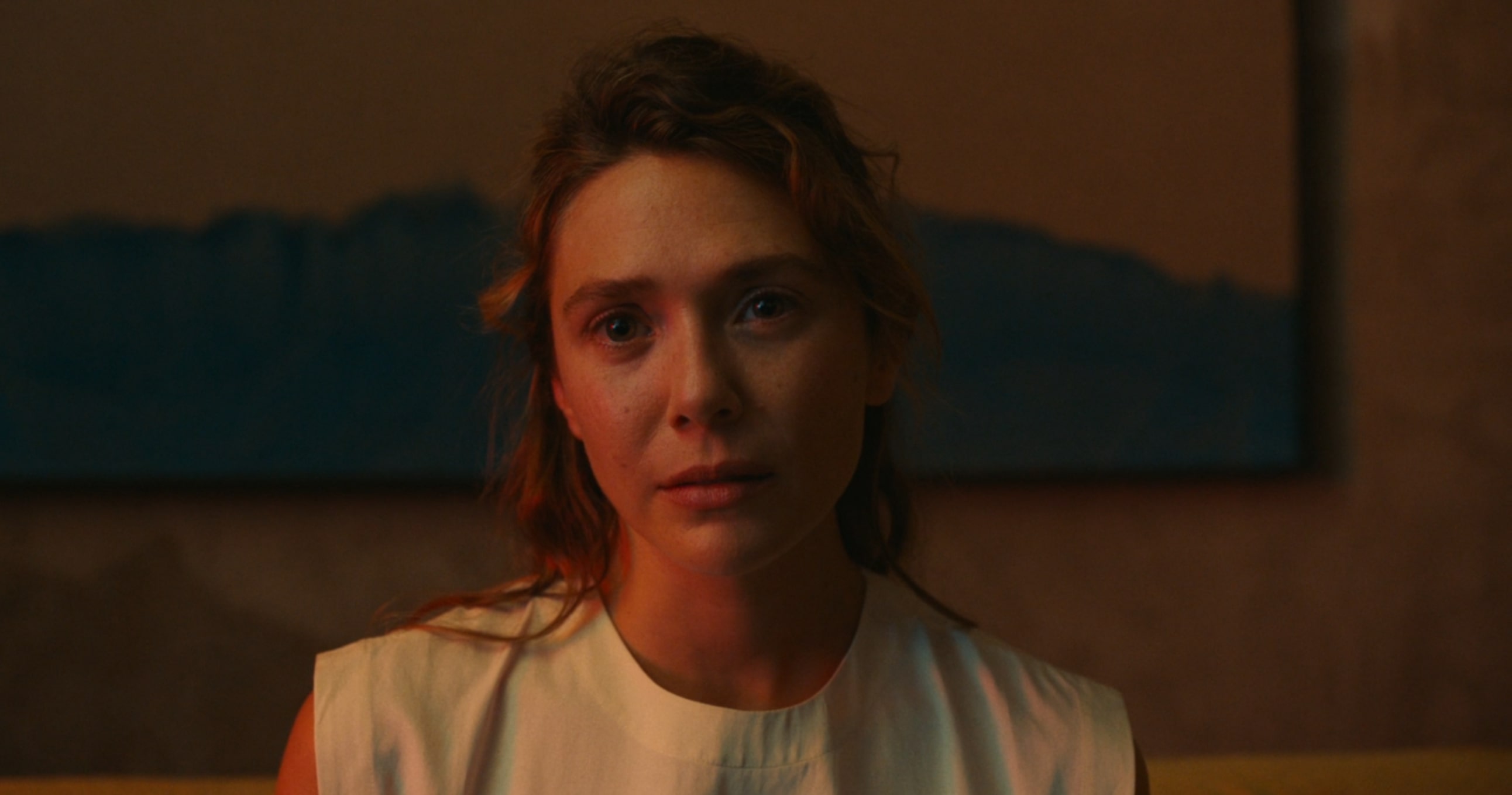
Yearning to expand their family, Mia and Aaryan enroll in a state-sanctioned reproduction program that demands prospective parents prove their worth over the course of seven emotionally taxing days. Enter Virginia—their cold, enigmatic assessor. What begins as a formal evaluation quickly devolves into psychological warfare. Virginia pushes boundaries, asking deeply personal, uncomfortable questions, then gradually adopts the role of a child—testing their patience, resilience, and morality. Her behavior becomes erratic and dangerous, putting both herself and the couple at risk and blurring the line between simulation and reality.
Despite enduring the grueling assessment and facing its challenges head-on, Mia and Aaryan don’t get the results in their favor. Refusing to accept the outcome, Mia confronts Virginia—only to uncover a harrowing truth that changes her view of the assessor. The film ends on a haunting, melancholic note, offering little comfort or clarity—only lingering sorrow and the unsettling question of what it means to be truly human in a world governed by machines.
The Assessment Ending: Why Does Virginia Take Her Own Life?
At the end of ‘The Assessment,’ the suicide of Virginia—whose real name is revealed to be Grace—feels sudden, but beneath the surface, it’s the devastating culmination of years of grief, guilt, and a system that reduces human emotion to protocols. Her decision to take her own life is not a spur-of-the-moment act; it is the only release she sees from a life of emotional imprisonment, moral compromise, and personal tragedy. Throughout the film, Virginia appears as a cold, clinical figure—strictly adhering to the rules of the reproduction assessment program. However, her final interaction with Mia peels back the layers to reveal a woman deeply broken.
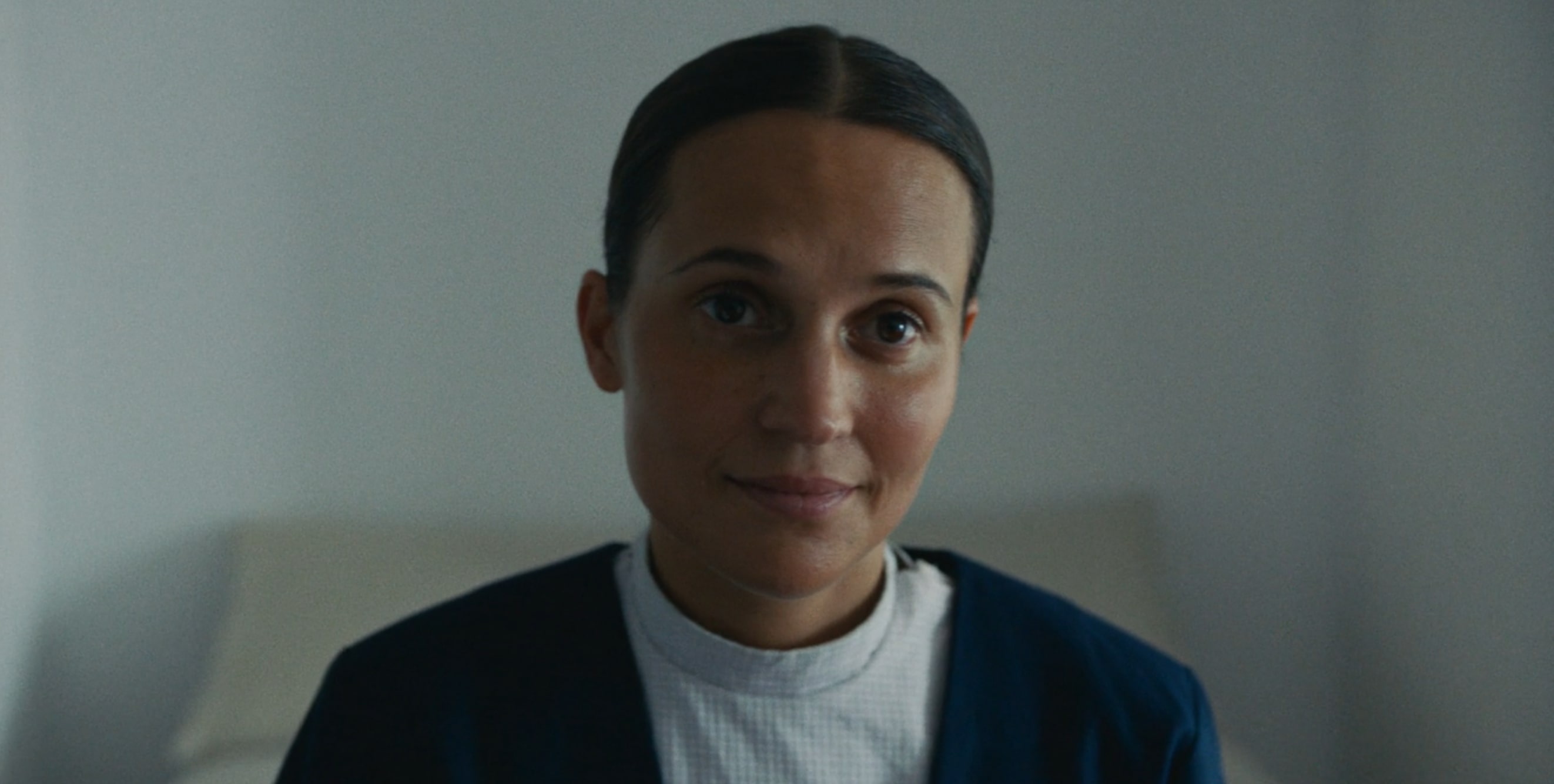
When Mia seeks answers concerning her and Aaryan’s failure in the program, Grace initially hides behind the procedure, stating, “Everything I did was within the protocols.” However, the real truth surfaces when she admits that everyone has failed the assessment in the last six years. “So, we never had a chance?” Mia asks, echoing the audience’s growing frustration with the system. Grace confirms it. The emotional turning point arrives when Grace reveals the death of her daughter. This loss is the unspoken wound that guides all her decisions. The system has rewarded her dedication as an assessor with a synthetic child—an illusion of parenthood meant to mask her pain. But Grace knows it’s a lie.
In a raw moment of vulnerability, Grace tells Mia, “You have no idea what it feels like to hold a child and tell her everything is okay… when she’s dying.” The grief she carries is not just for her daughter, but for herself—for the mother she no longer gets to be, and for the humanity she’s had to suppress to keep functioning in this cruelly mechanical system. When Mia offers Grace a chance to escape—to come live with her in the “Old World”—Grace declines, saying, “It’s not a nice place to be.” That line isn’t just about the physical world; it reflects her inner landscape. She has reached a point where every version of the future feels unbearable. Grace then finally comes to terms with the cruel truth that the role of a mother, once her deepest identity, is something she will never reclaim after her conversation with Mia, and it’s this realization that quietly shatters her.
Grace can’t return to the past; she’s complicit in a system she no longer believes in, and motherhood—the most human of connections—has been reduced to a bureaucratic reward. So, in the final sequence, as she begins yet another assessment with a new couple, she breaks the cycle. She walks over to the window and jumps to the ground, killing herself. Her suicide is her only act of rebellion in a world that has drained her of autonomy, empathy, and meaning. It’s a tragic exit, but also her quiet refusal to be part of a system that punishes love, grief, and vulnerability. Virginia/Grace doesn’t take her life because she is weak—she does it because it is the only way left for her to be free.
Why Do Mia And Aaryan Fail the Assessment?
Mia and Aaryan’s failure in ‘The Assessment’ is one of the most crushing and enigmatic moments in the film. After enduring a week of relentless psychological manipulation, emotional turmoil, and moral dilemmas, the couple’s efforts seem to collapse into nothing. The most devastating part? They truly believe they have earned the right to be parents until Virginia coldly tells them otherwise on the final day. Their failure is not because of a singular misstep but because the entire system is designed to be impossible to win. The key to understanding this lies in two things: the nature of the program itself and the actions that Virginia—whose real name is Grace—orchestrates to sabotage the couple under the guise of the “assessment.”
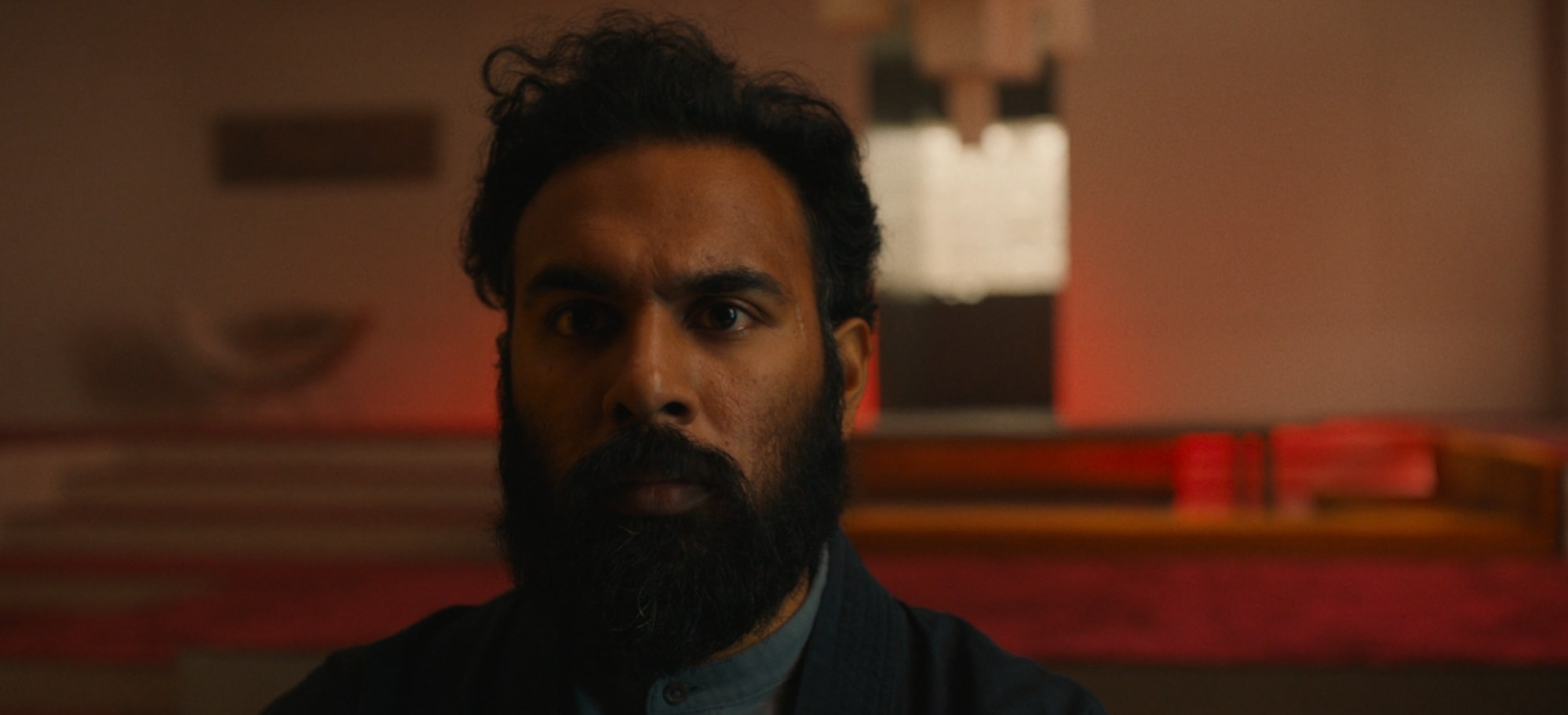
The days leading up to Mia and Aaryan’s failure are loaded with emotional traps. The former receives news that her sister is in the ICU, having lost her voice, a potentially fatal condition. When she seeks permission to visit, Virginia tells her she must return by 6 AM or the assessment will be terminated. This call turns out to be fake—fabricated by the system to test Mia’s resolve. That alone hints at how cruelly manipulative the entire process is. Simultaneously, Virginia attempts to seduce Aaryan. Despite his initial resistance, she sexually engages with him, exploiting the power imbalance. Aaryan is confused and disturbed, unsure whether it’s a test or something more sinister.
The next morning, Mia sees Aaryan and Virginia lying on the bed together. Though nothing explicitly romantic is shown, the damage is already done. Trust, the foundation of their relationship, is rattled. As if that is not enough, Virginia completely unravels. On the sixth day of the assessment, she disables the house’s protocols and destroys Mia’s greenhouse workspace—something that holds deep emotional and professional significance for the couple. She smashes equipment, hurls lab materials, and eventually starts a fire. Mia, swimming outside, sees the smoke and breaks through the glass to save her, even though it nearly costs her life. Aaryan watches helplessly.
Aaryan and Mia survive the ordeal, but their dream—the greenhouse they built with care and love—is reduced to ashes. Despite this chaos, they still hold on to hope. Mia, especially, believes their endurance, their compassion, and their commitment to each other will be enough. But it isn’t. On the final day, Virginia informs them they have failed without any explanation or closure. Mia and Aaryan fail not because they lack love, responsibility, or bravery. They fail because the system was never built to recognize these virtues. It was built to break them.
The assessment is no longer about finding worthy parents—it’s about disqualifying them and upholding an impossible standard in a sterilized, dystopian world. The film then leaves us with a haunting realization: in a world where empathy is measured by protocols and parenting is reduced to performance, even the most human acts can be deemed unworthy.
Why Does Mia Leave for the Old World? Why Does She Break Up With Aaryan?
Mia’s decision to depart for the Old World after leaving Aaryan is one of the most poignant and heartbreaking choices in ‘The Assessment.’ After failing the reproductive program and being told she’s unfit to be a parent, she is shattered—left with no hope, no closure, and no path forward in a society that defines human worth by artificial standards. Her decision is not just about geography; it’s a rebellion, an act of mourning, and ultimately, a desperate search for meaning in a world that has erased it. The New World in the film is portrayed as pristine but eerily hollow.
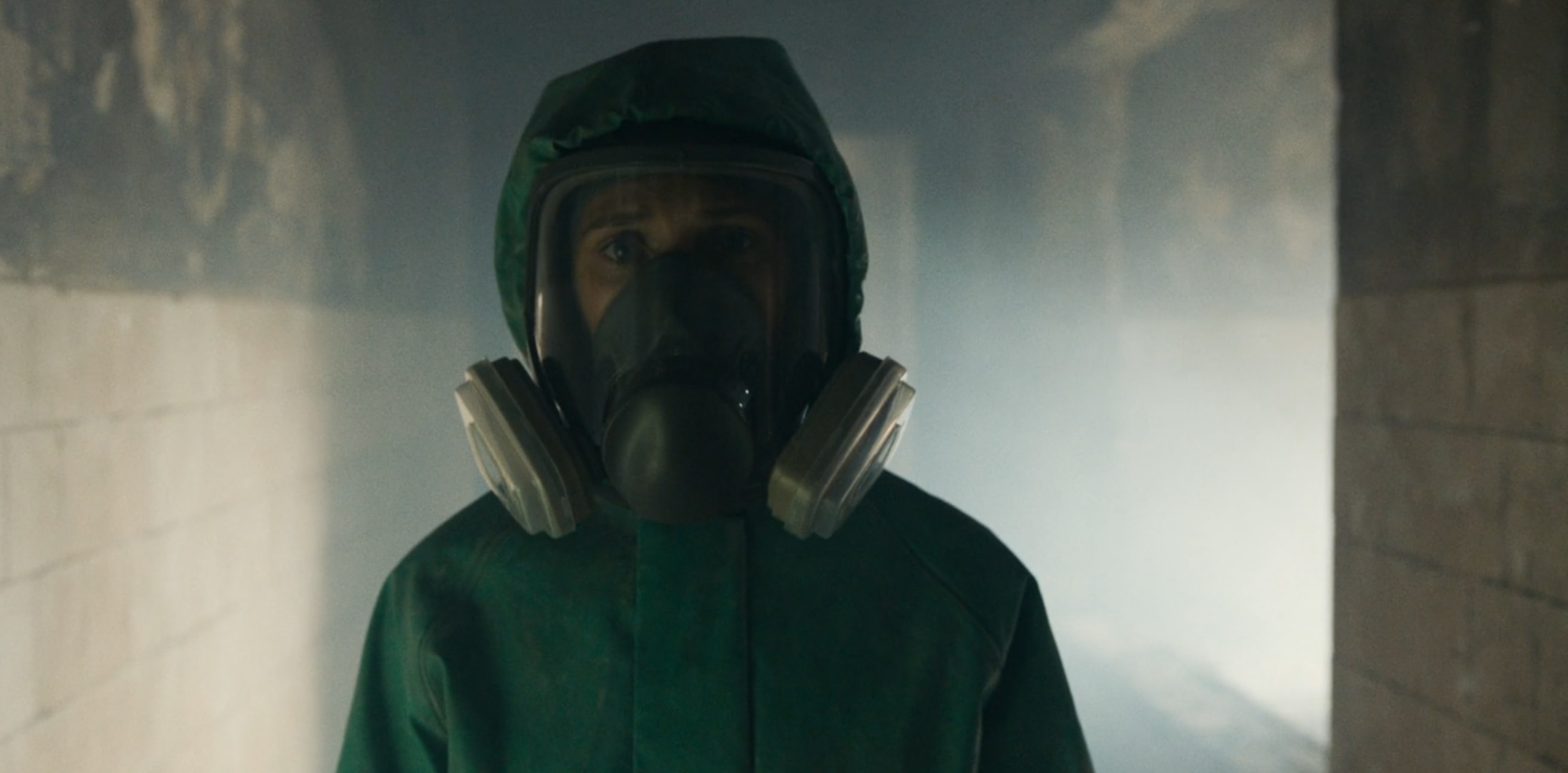
Controlled by AI, governed by protocols, and designed for human optimization, it’s a place where nature has been conquered, aging has been delayed through a drug called Senoxidine, and genuine emotional messiness is seen as a flaw. Parenting, once a natural desire, has been turned into a brutal, gamified system—where love, sacrifice, and resilience aren’t enough unless they check the right algorithmic boxes.
For Mia, this world finally collapses after the assessment, and she refuses to settle with what’s left for her. When she is not given the permission or opportunity to be a mother, she experiences unbearable grief of being denied something so elemental and human. The failure breaks something in her that cannot be repaired by artificial means or digital illusions. What’s worse is realizing that the system was never designed to let them pass—the program has always been rigged. The Old World, throughout the movie, is described in almost apocalyptic terms. It is where the “unworthy” are exiled, where nature still runs wild, and where aging and decay are visible.
But in that very chaos lies something Mia deeply yearns for—authenticity. Her mother lives there, someone who had been exiled from the New World for spreading “misinformation,” which must be inconvenient truths that the sterile system didn’t want to confront. Her banishment, in retrospect, mirrors Mia’s emotional exile. She chooses the Old World not out of curiosity or adventure but because it is the only place left where raw humanity still exists. It represents suffering but also freedom. It’s the only place where grief isn’t sterilized, where love isn’t measured, and where being a mother isn’t dictated by protocol.
Mia’s departure is a silent scream against the dehumanization she has endured. This move also reclaims her agency. In a world where every aspect of life is determined by others—AI systems, rules, assessments—leaving is her way of saying, “I choose what my life means.” Her mother’s exile becomes her inheritance, not as a punishment but as an escape route from a world that failed her more than she failed any test. In the end, Mia’s journey is not about motherhood alone—it’s about reclaiming what it means to be human. And sometimes, being human means walking into the wild, flawed, painful unknown because at least there, your soul is still yours.
Is Chrissie Real? Who is the Woman?
Chrissie, the girl who appears at the end of ‘The Assessment,’ is not real. She is a virtual creation designed by Aaryan. Just as he engineers realistic, AI-powered animals earlier in the film, he creates this virtual child as a response to his and Mia’s failure in the parenting assessment. For Aaryan, it seems to be a way of coping—a compromise that allows him to experience the idea of fatherhood, even if it is through artificial means. In a world where technology replaces emotion and simulation replaces experience, Aaryan settles for what is available. The baby offers him control, predictability, and the comfort of a “family” without the chaos or vulnerability of raising a real child.
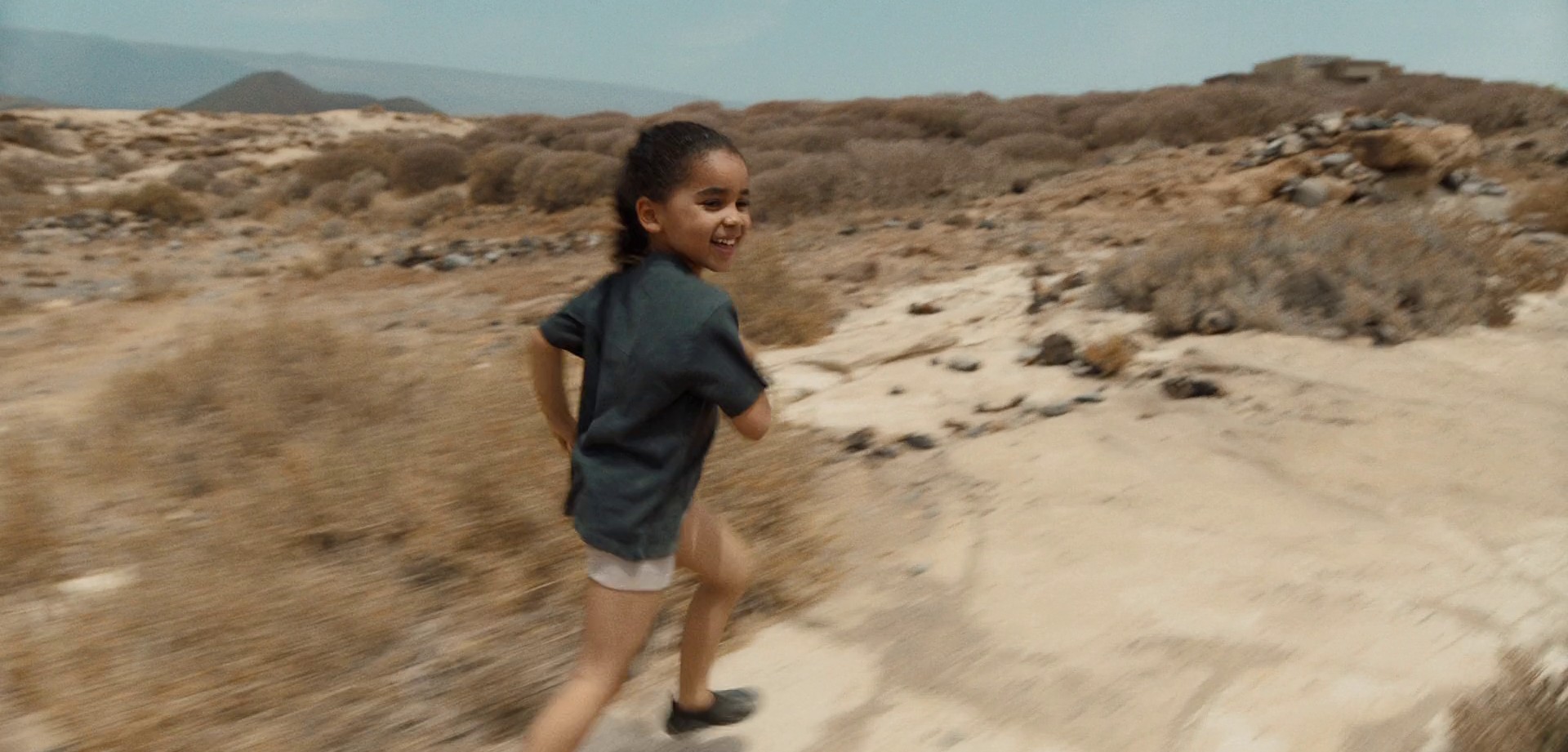
Mia, however, rejects this illusion. She doesn’t see the virtual child as the solution to her real motherhood. Her longing is rooted in authenticity and building a connection that grows naturally and unpredictably. That’s why she chooses to leave the sterile perfection of the New World and venture into the Old World—a place marked by decay, suffering, and the rawness of real life. For her, even hardship is better than artificial fulfillment. This is the reason why Aaryan is forced to create an AI version of Mia after she leaves for the Old World. The woman who appears at the backdoor while he plays with Chrissie is a virtual reimagining of his ex-partner, who leaves him for an authentic life.
Virginia (Grace), the assessor, is a tragic example of what happens when this artificial system fails to heal human pain. Even though she was promised a child after her daughter drowned, it was not enough to fill the void. She finally understands that her wait to be a mother again will never cease. This realization eventually breaks her, leading to her suicide. The final scenes are haunting. Aaryan plays with Chrissie, lost in a beautiful but empty fantasy. It’s a sobering reminder of a world where emotional reality is replaced with digital perfection—and the cost is one’s very humanity.
How Did Virginia/Grace’s Daughter Die?
Virginia’s daughter died by drowning when she was eight years old. This detail is revealed late in the film during a vulnerable exchange between her, whose real name is Grace, and Mia. Until this moment, she maintains a strict and emotionally detached persona, hiding any trace of her personal life. However, as Mia confronts her about the outcome of the assessment, Grace breaks down and shares the painful truth. She explains how, during her daughter’s final moments, she held her and told her everything would be okay, even though she knew her daughter was dying. This heartbreaking confession reveals the extent of Grace’s grief and helps explain her emotional detachment and rigid behavior throughout the film.
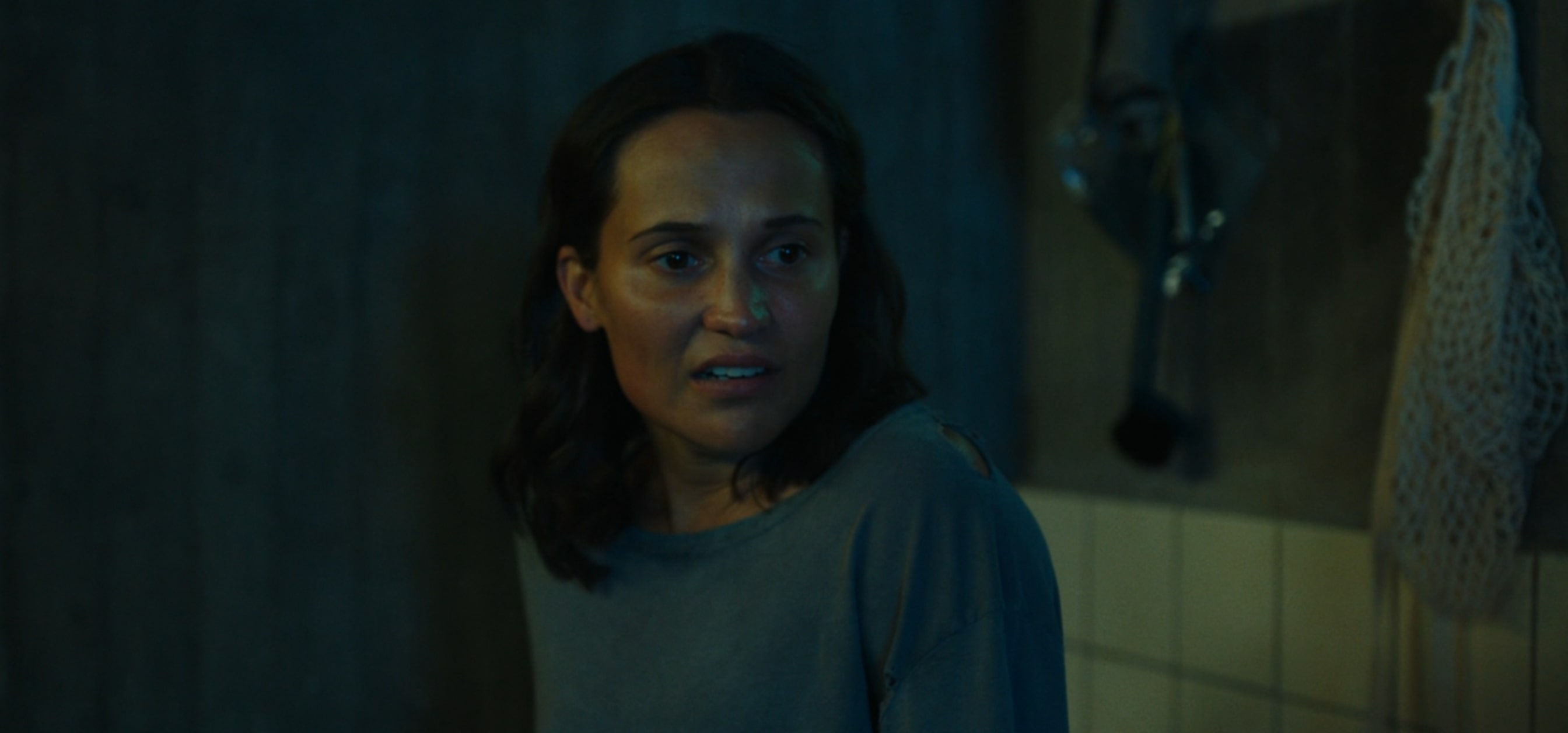
The death of Grace’s daughter was not only traumatic but also something she was never able to process or heal from, especially in a world that suppresses natural emotions and pain. The death by drowning adds a layer of tragic symbolism—representing helplessness, a lack of control, and the very vulnerability the New World seeks to eliminate. It’s clear that Grace’s trauma has deeply shaped how she interacts with other people, particularly the couples she assesses. Her actions are driven not just by protocol but also by the weight of a personal loss that still haunts her. Ultimately, this moment provides a rare glimpse into Grace’s humanity, offering context for her final decision and showing that behind the system’s cold mechanics lies a woman broken by grief.


